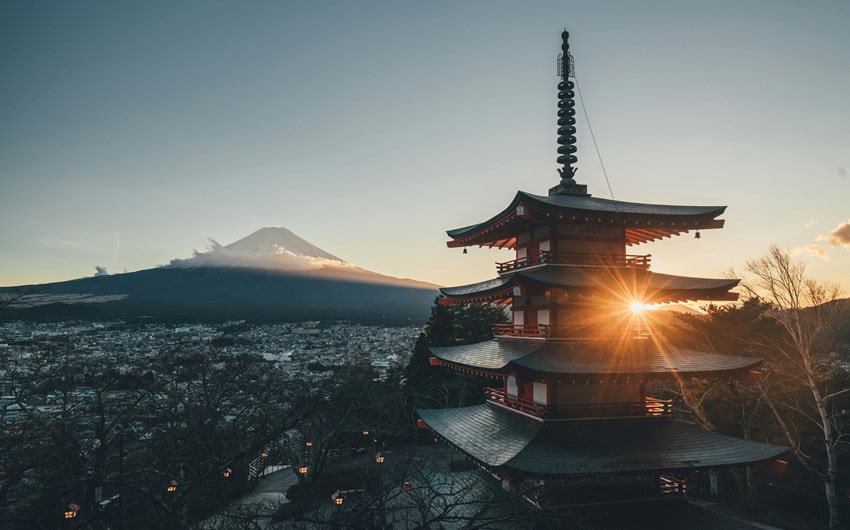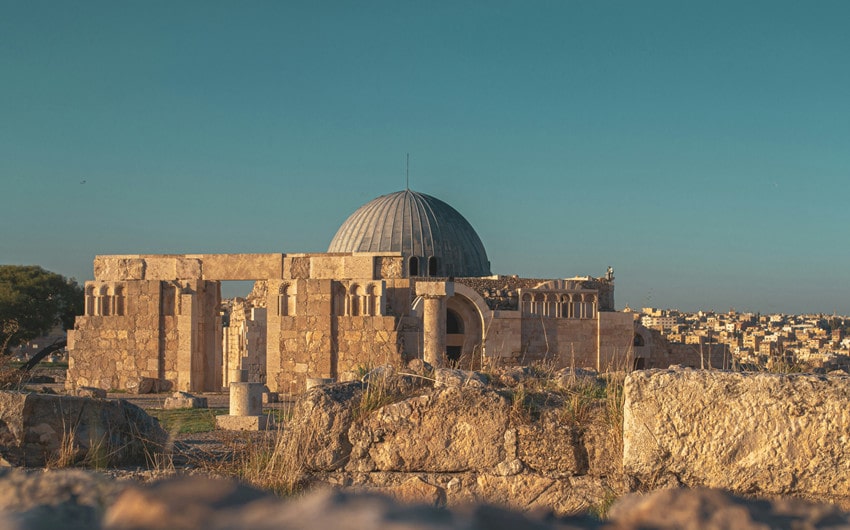3 Fascinating Countries That Start with J You Must Visit
Looking to explore new and exciting destinations? Let’s dive into some unique countries that start with J, each offering its own blend of culture, history, and breathtaking landscapes. From the vibrant music and beaches of Jamaica to Japan’s blend of ancient traditions and cutting-edge technology, and the rich history of Jordan with its ancient wonders, these countries are full of experiences that captivate travelers.
Whether you’re planning your next trip or just curious about the world, these countries have something special to offer that will inspire your wanderlust.
1. Jamaica

Location and Geography
Jamaica is a beautiful island nation located in the Caribbean Sea, about 90 miles south of Cuba and 100 miles west of Haiti. Known for its stunning beaches, lush mountains, and vibrant coral reefs, Jamaica is the third-largest island in the Caribbean.
The island’s diverse geography includes everything from white sandy shores and turquoise waters to rolling hills and the famous Blue Mountains, which are home to some of the world’s best coffee. This unique mix of landscapes makes Jamaica a paradise for beach lovers and adventure seekers alike.
Culture and History
Jamaica’s rich culture is a vibrant blend of African, European, and indigenous influences, creating a unique identity that has captured the hearts of people worldwide. The island is perhaps best known as the birthplace of reggae music, thanks to legendary artists like Bob Marley who brought Jamaican rhythms and messages of peace and unity to the world stage.
The island’s history is marked by its colonial past, with influences from Spanish and British rule still evident in its architecture, language, and customs. Despite its turbulent history, Jamaica’s people are known for their warmth, resilience, and a strong sense of national pride.
Key Attractions
Jamaica offers an abundance of attractions that cater to all types of travelers. The bustling capital city of Kingston is the cultural heart of the island, home to the Bob Marley Museum, vibrant street art, and lively music scenes. For those seeking relaxation, destinations like Montego Bay, Negril, and Ocho Rios offer beautiful resorts, pristine beaches, and world-class snorkeling and diving opportunities.
Adventurous visitors can explore the stunning Dunn’s River Falls, hike the Blue Mountains, or visit the historic Rose Hall Great House. Jamaica’s rich culinary scene, famous for jerk chicken, fresh seafood, and tropical fruits, also adds to the island’s irresistible appeal.
Cuisine and Festivals
Jamaica’s cuisine is as vibrant and diverse as its people, known for bold flavors and spices that reflect its cultural heritage. Jerk chicken, curry goat, ackee and saltfish (the national dish), and patties are just a few of the mouthwatering dishes that define Jamaican food.
The island’s culinary traditions are celebrated at various food festivals, including the annual Jamaica Food and Drink Festival, where locals and visitors alike can indulge in the best of Jamaican flavors. Jamaica also hosts lively cultural events such as Reggae Sumfest and Carnival, which showcase the island’s music, dance, and infectious energy.
2. Japan

Location and Geography
Japan is an island nation located in East Asia, bordered by the Pacific Ocean, the Sea of Japan, China, and Korea. The country is made up of four main islands—Honshu, Hokkaido, Kyushu, and Shikoku—along with over 6,800 smaller islands. Japan’s diverse landscape includes bustling cities, serene countryside, majestic mountains, and stunning coastlines.
One of its most iconic natural landmarks is Mount Fuji, a sacred snow-capped volcano that is a symbol of Japan’s natural beauty. The country’s varied geography also includes lush forests, hot springs, and picturesque rural villages that offer a glimpse into traditional Japanese life.
Culture and History
Japan is renowned for its rich cultural heritage, which seamlessly blends ancient traditions with modern innovation. The country’s history dates back thousands of years, with influences from Shinto and Buddhist traditions shaping its spiritual and cultural identity. Historic cities like Kyoto and Nara are home to countless temples, shrines, and gardens that reflect Japan’s deep-rooted respect for nature and spirituality.
Meanwhile, the country’s capital, Tokyo, epitomizes Japan’s dynamic fusion of old and new, with futuristic skyscrapers standing alongside historic sites like the Imperial Palace. Japanese culture is also famous for its arts, including traditional tea ceremonies, calligraphy, ikebana (flower arranging), and martial arts like judo and karate.
Key Attractions
Japan offers a wealth of attractions that cater to every type of traveler. Tokyo, one of the world’s most vibrant cities, is a hub of shopping, dining, and entertainment, known for landmarks like the bustling Shibuya Crossing, the historic Asakusa district, and the iconic Tokyo Tower.
Kyoto, once the imperial capital, is famous for its well-preserved temples, traditional wooden houses, and beautiful geisha districts. Visitors can also explore the ancient samurai culture in cities like Kanazawa or visit Hiroshima’s Peace Memorial Park, a poignant reminder of the city’s past.
Nature lovers will find plenty to explore in Japan, from hiking in the Japanese Alps and visiting hot springs in Hakone to seeing the famous cherry blossoms in spring. The country’s unique seasonal attractions, such as autumn leaf viewing and winter snow festivals, make it a year-round destination. Japan is also a paradise for food enthusiasts, offering everything from sushi and ramen to street food delights like takoyaki and okonomiyaki.
Cuisine and Technology
Japanese cuisine is renowned worldwide for its emphasis on fresh, seasonal ingredients, artful presentation, and a balance of flavors. From traditional dishes like sushi, tempura, and kaiseki (multi-course meals) to modern innovations like conveyor belt sushi and vending machine ramen, Japan’s food scene is both diverse and deeply rooted in tradition. The country is also famous for its meticulous attention to detail in food preparation, making dining in Japan a unique experience that delights the senses.
Japan is also at the forefront of technological innovation, known for its advancements in robotics, electronics, and automotive industries. Cities like Tokyo and Osaka are showcases of cutting-edge technology, with everything from high-speed bullet trains (Shinkansen) to futuristic tech districts like Akihabara, where visitors can experience the latest in gaming, anime, and electronics.
Japan’s commitment to innovation is also evident in its eco-friendly initiatives, smart cities, and state-of-the-art infrastructure, making it a leader in sustainable development.
Festivals and Traditions
Japan is a land of festivals, with vibrant events that celebrate its rich traditions and seasonal changes. The famous cherry blossom festivals, known as hanami, draw millions of visitors each spring to parks and gardens across the country to enjoy the fleeting beauty of blooming sakura trees.
Summer brings lively festivals like Gion Matsuri in Kyoto and Nebuta Matsuri in Aomori, featuring colorful parades, floats, and fireworks. In winter, the Sapporo Snow Festival dazzles with massive ice sculptures, while autumn is celebrated with stunning foliage viewing and traditional harvest festivals.
From its ancient temples and serene gardens to its bustling cities and technological marvels, Japan offers a unique blend of experiences that cater to all interests. Whether you’re exploring the historic streets of Kyoto, marveling at the neon lights of Tokyo, or savoring a bowl of ramen in a local izakaya, Japan’s rich culture, and welcoming spirit make it a captivating destination for travelers.
3. Jordan

Location and Geography
Jordan is a Middle Eastern country located at the crossroads of Asia, Africa, and Europe. It shares borders with Israel, Palestine, Syria, Iraq, and Saudi Arabia, and has a short coastline along the Red Sea.
Despite being a relatively small nation, Jordan boasts diverse landscapes that range from the arid desert of Wadi Rum to the lush Jordan Valley and the salt-laden waters of the Dead Sea. Its capital, Amman, is a modern city with ancient roots, showcasing a blend of contemporary culture and historical significance. Jordan’s strategic location has made it a cultural and trading hub for centuries, enriching its landscapes with remnants of ancient civilizations.
Culture and History
Jordan’s history is rich and deeply intertwined with some of the world’s oldest civilizations, including the Nabataeans, Romans, Byzantines, and Islamic Caliphates. The most famous historical site in Jordan is Petra, the ancient rose-red city carved into rock, which was once the capital of the Nabataean Kingdom and is now one of the New Seven Wonders of the World.
Beyond Petra, Jordan is home to countless archaeological treasures, including the Roman ruins of Jerash, the medieval castles of Karak and Shobak, and the historic mosaics of Madaba.
Jordanian culture reflects a unique blend of Bedouin traditions, Islamic heritage, and influences from neighboring countries. Hospitality is a cornerstone of Jordanian life, with visitors often welcomed with open arms and traditional Bedouin tea or coffee. The country’s culture is also characterized by its music, dance, and traditional crafts, such as intricate embroidery and mosaic art. Jordanian society is known for its warmth and generosity, making it a welcoming destination for travelers seeking to explore the Middle East.
Key Attractions
Jordan offers a wealth of attractions that draw tourists from around the world. Petra, often referred to as the “Lost City,” is a must-visit, famous for its rock-cut architecture, including the iconic Treasury, Monastery, and hundreds of tombs and temples.
Another highlight is Wadi Rum, a breathtaking desert landscape known for its towering sandstone mountains, red sand dunes, and ancient petroglyphs. Often described as “Mars on Earth,” Wadi Rum is popular for activities like jeep tours, camel rides, and stargazing under some of the clearest skies in the world.
The Dead Sea, the lowest point on Earth, is another unique attraction in Jordan. Its mineral-rich waters and mud are renowned for their therapeutic properties, attracting visitors seeking both relaxation and wellness. Floating effortlessly on the sea’s salty surface is a once-in-a-lifetime experience.
The capital city, Amman, is a vibrant mix of modernity and history, with bustling souks, ancient ruins such as the Roman Amphitheater and Citadel, and a lively arts and dining scene. Other notable sites include the Baptism Site of Jesus at the Jordan River, Mount Nebo, and the Dana Biosphere Reserve, which offers incredible hiking and nature experiences.
Cuisine and Traditions
Jordanian cuisine is a delightful blend of Middle Eastern flavors, influenced by Bedouin traditions and regional ingredients. Mansaf, the national dish, is a must-try—a savory combination of lamb cooked in a fermented yogurt sauce, served over a bed of rice and garnished with nuts.
Other popular dishes include falafel, hummus, maqluba (a layered rice dish), and zarb, a traditional Bedouin barbecue cooked underground. Jordanian hospitality extends to its food, with meals often shared among family and friends, reflecting the communal nature of Jordanian society.
Traditional tea and Arabic coffee are an integral part of Jordanian culture, often served with dates or sweets as a gesture of hospitality. Jordan also hosts various cultural festivals throughout the year, such as the Jerash Festival of Culture and Arts, which showcases local music, dance, and performances, celebrating the country’s rich artistic heritage. The warm and welcoming spirit of the Jordanian people, combined with their delicious cuisine and deep-rooted traditions, provides visitors with a truly immersive cultural experience.
Modern Day Jordan and Tourism
Modern Jordan is a blend of tradition and progress, with Amman serving as a bustling metropolis that is rapidly modernizing while retaining its historical charm. The country is known for its political stability in a region often marked by conflict, making it a safe and appealing destination for tourists. Jordan’s commitment to preserving its natural and cultural heritage is evident in its numerous conservation and archaeological efforts, ensuring that its historical treasures remain for future generations.
Tourism plays a vital role in Jordan’s economy, and the government actively promotes its historical and natural sites. Adventure tourism, including hiking, diving in the Red Sea, and exploring the desert landscapes, has seen significant growth. Jordan’s diverse offerings make it an attractive destination for all types of travelers, from history buffs and nature enthusiasts to those seeking relaxation and cultural immersion.







